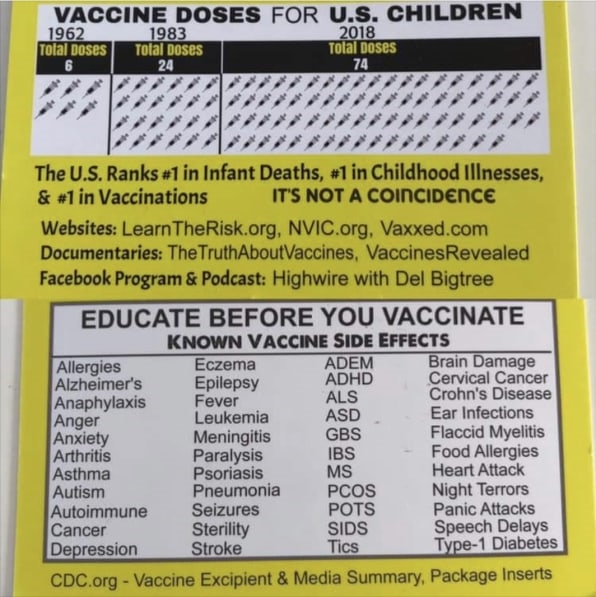Anti-vaxxers are sneaking flyers into diapers at Target stores
Anti-vaccination groups are rampant on Facebook, which they use to spread false information. Now, “anti-vaxxers” are mobilizing offline, as well. In Maine, where legislators are debating a bill that would eliminate religious and philosophical exemptions to vaccination, anti-vaxxers have been placing flyers in diaper packages at big-box retailers, including Target and Walmart.
One shopper in South Portland, Maine, found an alarmist false message in boxes of Up&Up diapers—Target’s house brand—and posted a picture (screenshot below) on Facebook.
“Educate before you vaccinate,” the flyer says, incorrectly claiming that the U.S. ranks “#1 in infant deaths.” (In fact, the U.S. ranks #170.) The flyer also purports to be a Centers for Disease Control & Prevention (CDC) package insert.

“These flyers weren’t issued and they’re not endorsed by the Maine CDC or the federal CDC,” Maine CDC spokesperson Emily Spencer said earlier this week.
“We quickly reviewed all similar products in our South Portland store to ensure there weren’t any additional flyers,” a Target spokesperson tells Fast Company.
Similar flyers appeared in diaper boxes in Washington State a few years ago, according to the state’s Department of Health. State lawmakers in Olympia are currently considering legislation similar to Maine’s proposed bill as they grapple with a measles outbreak. So far, there are over 50 confirmed measles cases in Washington.
Research suggesting a link between vaccines and autism, among other diseases, has been debunked. In the early 20th century, measles claimed the lives of approximately 6,000 Americans every year.
Anti-vaxxers have long used the internet and social media to spread their messages, but mainstream tech companies have begun to crack down as part of a larger fight against misinformation. Last year, we reported that Facebook shut down dozens of pages over suspicious health claims, while YouTube recently vowed to stop recommending videos that contain conspiracy theories. As anti-vaccination groups are pushed further into the digital fringes, they may increasingly try to rely on canvasing efforts in the physical world.
(17)



